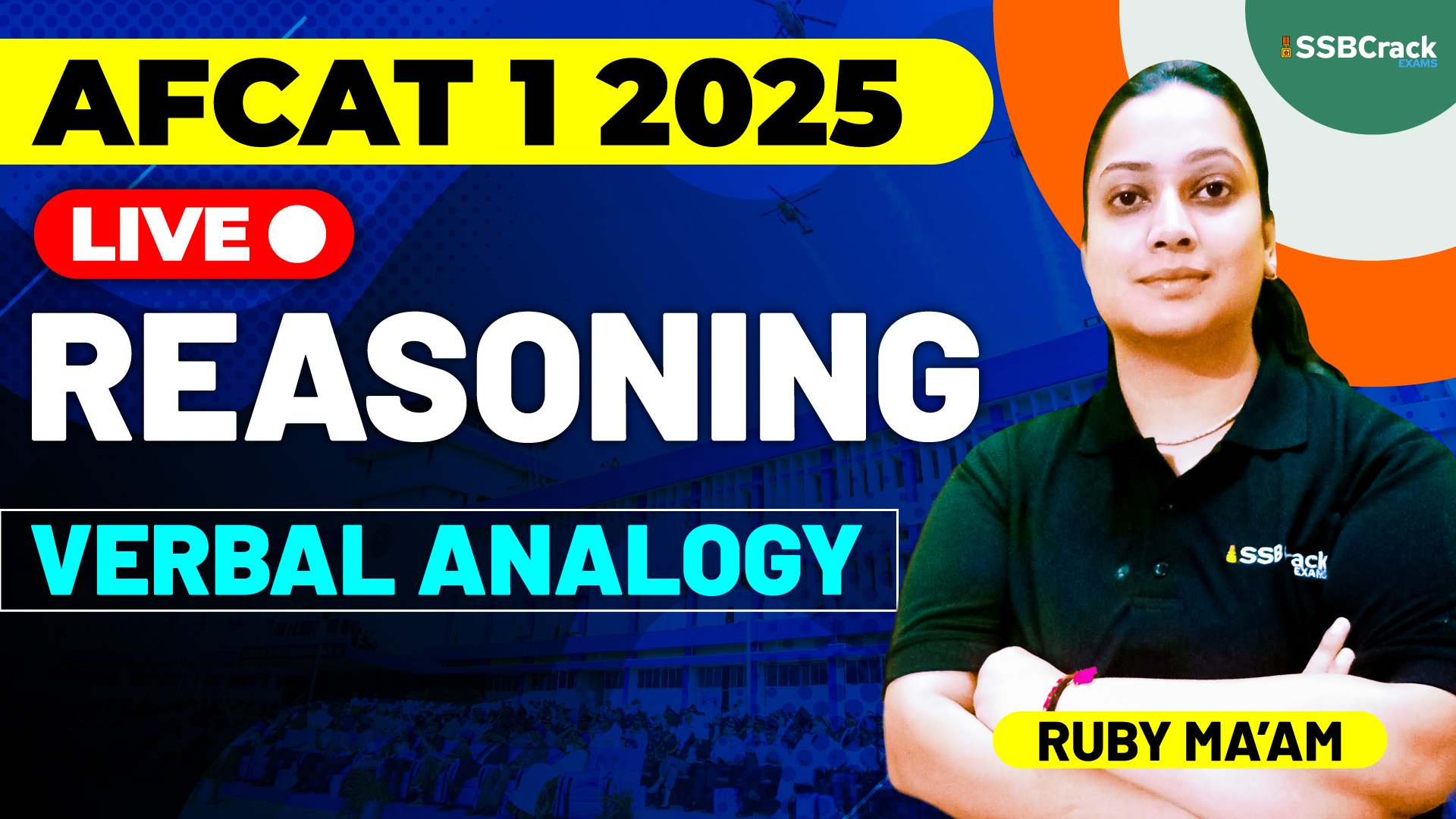The Air Force Common Admission Test (AFCAT) is one of the most important exams for those aspiring to serve in the Indian Air Force. As part of the General Awareness, Verbal Ability, and Reasoning section, verbal analogy holds a key role in assessing a candidate’s logical thinking, verbal reasoning, and understanding of relationships between words and concepts. Let’s explore why verbal analogy is critical for AFCAT aspirants and how it can enhance their performance in the exam.
What is Verbal Analogy?
Verbal analogy questions typically present two pairs of words, where the relationship between the first pair is mirrored in the second pair. Candidates are required to understand this relationship and identify the correct word to complete the analogy. For example:
- Sun : Day :: Moon : ?
Here, the correct answer would be Night, as the sun is associated with the day, and the moon is associated with the night.
Verbal analogy questions test one’s ability to recognize patterns, relationships, and meanings, making them essential in evaluating cognitive and linguistic abilities.
Why Verbal Analogy is Crucial in AFCAT
- Enhances Logical Reasoning Skills
Verbal analogy tests the ability to identify relationships between words, which directly enhances your logical reasoning skills. Since AFCAT is a competitive exam, mastering verbal analogies will not only help you score higher but also improve your overall reasoning abilities, which is critical for other sections as well. - Improves Vocabulary and Language Understanding
Preparing for verbal analogy questions requires a strong vocabulary. When you practice these questions, you inadvertently work on understanding the nuances of language, synonyms, antonyms, and word meanings. A rich vocabulary allows you to decode the relationships between words more quickly and accurately, which is helpful not only in the verbal ability section but also in other sections that require comprehension skills. - Time-Saving Technique in Exam
The key to cracking competitive exams like AFCAT is efficient time management. Verbal analogy questions, if practiced well, can be solved quickly compared to longer comprehension passages or complex reasoning problems. A well-prepared aspirant can capitalize on this section to save valuable time for other, more time-consuming questions. - Strengthens Pattern Recognition
One of the skills honed through verbal analogy practice is the ability to spot patterns. Whether the analogy involves synonyms, antonyms, cause-effect, or function-relationship patterns, recognizing these relationships will also sharpen your reasoning skills in other areas, such as quantitative aptitude or non-verbal reasoning. - Assesses Quick Thinking
Verbal analogy questions demand quick and sharp thinking. In a high-pressure exam environment, your ability to quickly grasp the relationship between words and find the correct answer is crucial. Regular practice will enable you to think swiftly, thereby improving your overall exam performance.
Tips for Mastering Verbal Analogy
- Expand Your Vocabulary
A well-rounded vocabulary is the foundation of solving verbal analogy questions. Read books, articles, and journals to expose yourself to a wide range of words. Use vocabulary-building apps or flashcards to learn new words regularly. - Practice Recognizing Relationships
The more you practice, the better you’ll get at identifying different types of word relationships. Focus on common analogy patterns such as part-whole, cause-effect, function, and synonyms-antonyms. - Use Elimination Techniques
In the AFCAT exam, some answer choices may seem similar. Use the process of elimination by identifying the most obvious relationships between words and ruling out options that don’t fit the pattern. - Time Yourself While Practicing
As AFCAT is a time-bound exam, it’s important to practice verbal analogy questions with a timer. This will not only improve your speed but also help you develop the habit of quick decision-making under pressure. - Solve Previous Year Papers
Going through past AFCAT papers will give you a clear understanding of the type of verbal analogy questions that frequently appear in the exam. This will allow you to focus your preparation accordingly.
Conclusion
Verbal analogy is an indispensable part of the AFCAT exam that not only tests your language skills but also sharpens your reasoning ability. With its high-scoring potential and quick-solving nature, mastering this topic can give you an edge over other candidates. Through regular practice, vocabulary enhancement, and logical thinking, you can significantly improve your performance in this section and boost your chances of success in AFCAT.
For aspirants aiming to ace the exam, it’s essential to give this topic the attention it deserves. So, start practicing, and you’ll find that verbal analogy will become one of the strongest tools in your AFCAT preparation arsenal.







